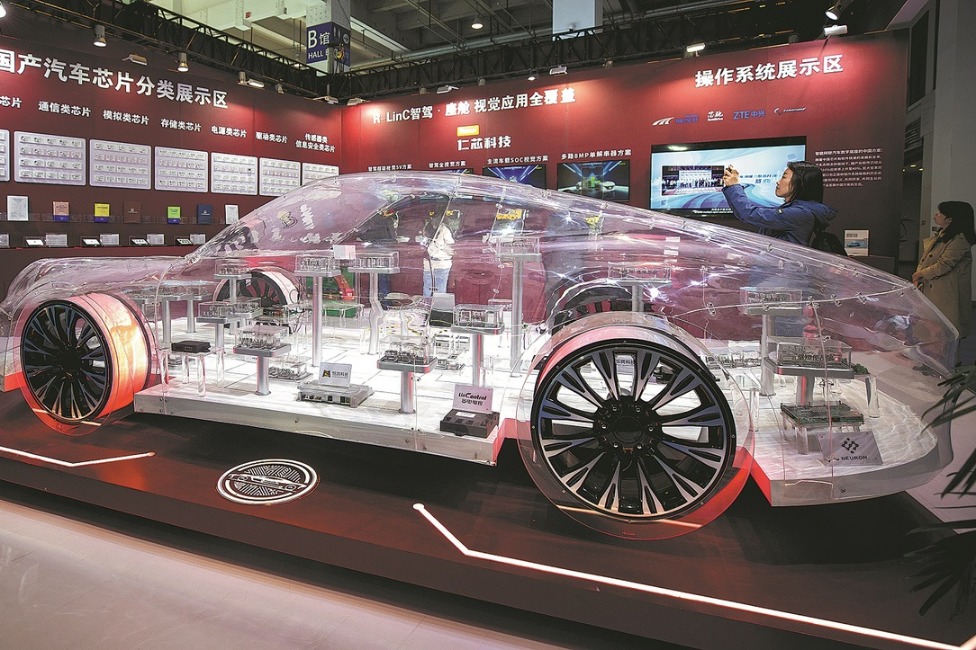Experts call for US-China AI collaboration
By LIA ZHU in San Francisco | chinadaily.com.cn | Updated: 2024-10-21 10:03
As the debate intensifies over how to build guardrails around artificial intelligence, experts are calling on the United States and China, the two leading nations in AI development, to foster collaboration on safety and the ethical use of this rapidly evolving technology.
The recent veto of California Senate Bill 1047 by Governor Gavin Newsom on Sept 29 has reignited discussions about the balance between innovation and regulation in the AI industry. The bill, which aimed to hold large AI model developers responsible for potential "catastrophic" harm caused by their models, was rejected due to concerns that it might jeopardize California's leadership in AI development.
Despite the veto, discussions continue over how to best govern this technology. Experts interviewed by China Daily emphasized the importance of finding a balanced approach through international collaboration and information sharing.
"Whenever technology advances, there's always the misapplication of technology. And the best disinfectant is openness and sharing," Randy Schekman, professor of molecular and cell biology at the University of California, Berkeley, and a 2013 Nobel Laureate, told China Daily.
He said that access to information about global AI activities is crucial for identifying potential misuse and also highlighted the need for societal controls on advanced technologies like AI.
"Scientists can't make all the decisions. These decisions have to be made by society, and there has to be some way of controlling the misapplication of technology through societal intervention," he said. "We live in a diverse world and there are different standards. There needs to be international cooperation on standards for the misapplication of any new technology."
Kai-Fu Lee, chairman and CEO of Sinovation Ventures and author of AI 2041 and the New York Times bestseller AI Superpowers, echoed concerns about the potential dangers of AI. He pointed out generative AI's capabilities, such as planning wars, designing weapons or autonomously deciding to kill, and advocated for international collaboration on threats like autonomous weapons.
"These larger issues ... will require countries to sit down together to work on them," he said. Lee suggested that the US and China, along with other nations, should prioritize tackling common threats and sharing technological developments to ensure AI safety. "I think the countries will see that as a common interest, and they may have the motivation to work together," he added.
A new study by Florence G'sell, a visiting professor at Stanford University's Cyber Policy Center, compared the AI governance approaches of China, the United States and the European Union.
The study highlighted the United States and China as "the clear front-runners" in AI development, with data from the Stanford AI Index Report 2024 showing that 61 AI models were developed by US-based institutions in 2023, while 21 were developed in the European Union and 15 in China.
The author noted that China is one of the leading nations with the most extensive AI legislation, particularly concerning generative AI. The country's Global AI Governance Initiative makes a commitment to developing ethical norms, privacy protections and legal structures. It also emphasizes international collaboration and equitable governance of AI technologies.
China has also introduced measures for scientific and technological ethics reviews, signaling its dedication to "enforcing its ethical standards in science and technology, and safeguarding societal welfare against the backdrop of rapid technological advancement", said the study.
Unlike the European Union or China, the United States lacks a comprehensive federal framework for AI governance. Instead, it relies on voluntary commitments from major AI companies.
The study suggests that there does not appear to be much appetite in the US to ameliorate AI risks with a new federal agency or sweeping new rules, with most proposed legislation revealing a reluctance to overregulate or stifle innovation.
Despite geopolitical tensions, experts argue that the US and China have the responsibility to ensure the ethical use of AI technologies and the two countries can learn from each other's practices to lead global AI governance.
"AI is having a transformative impact on every aspect of life in modern society, so it's very important for us to think very carefully how to inform the policymakers and the lawmakers to regulate and help to guide the development and usage of AI to ensure that it is ethical and responsible and will help improve life for all people in our global society," said Tsu-Jae King Liu, dean of the College of Engineering at University of California, Berkeley.
"Today, the US and China have the leading technologies on AI so I think it's very important for us to be able to collaborate and together chart a path for a safe and secure future that will be healthy and beneficial for all," she added.
Yangqing Jia, founder and CEO of Silicon Valley-based Lepton AI and a former AI expert with Alibaba, pointed out similarities between the US and China, describing both as "pro-development" with a vivid venture capital industry in terms of technology.
He sees the potential for more frequent technological collaborations between the two countries and emphasizes the need for a collaborative environment in a rapidly changing world.
"We're both building great technologies, not only AI, but also cloud and other software that are open source and shared with the world," said Jia. "As someone who has studied in the US and worked in both China and the US, I've seen that there are many opportunities for technological collaboration between the two countries. I believe a collaborative environment is always what we need, especially in our rapidly changing world."
























